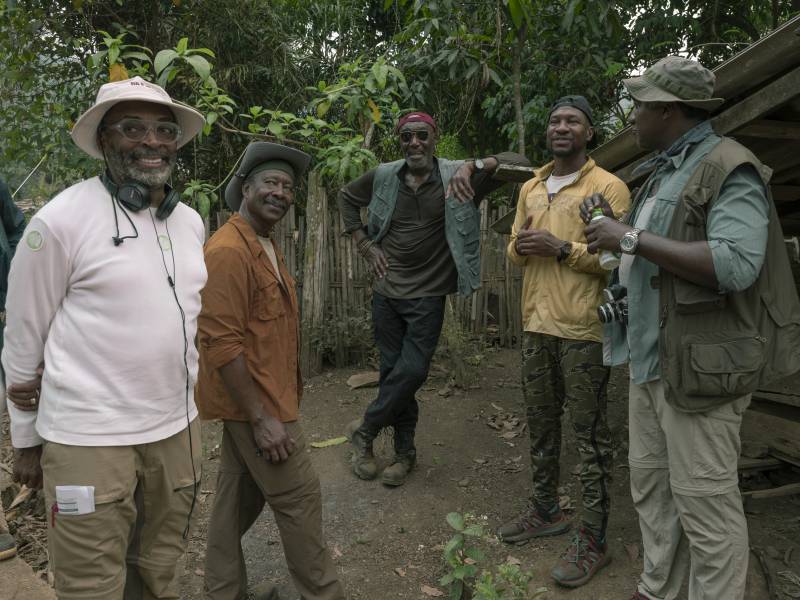I understand that he didn’t want to be treated differently than any of the actors. … The first battle sequence, he has to run, like, 100 yards, and I was telling him to run like Usain Bolt. If I had known that he was terminally ill, I would not ask him to do that. And that’s the reason why he didn’t tell me. He didn’t want to take any shorts.
On the decision to make one of the veterans in the film a Trump supporter
As a young lad growing up in Brooklyn, N.Y., my late mother, Jacquelyn Lee, would always tell me, “Spikey, all Black people don’t look alike, think alike, act alike. Black folks are not one monolithic group.” That’s always stuck with me. So if I had this group of guys, they all can’t be lovey-dovey. So it was very simple to think of what was the one thing that would be the most combustible and that would be for Paul’s character to be a Trump-et. And another thing [in the film] that people don’t pick up, is that many people wear that hat, Paul’s [MAGA] hat. It doesn’t end with him.
On the origin of “Hanoi Hannah,” a Vietnamese radio personality who broadcast anti-war propaganda aimed at American troops
She would play popular American music, rock ‘n’ roll, soul, and in between songs, she was given a script to read. And even though some people might say it was propaganda, a lot of stuff she said was not a lie. You know, she says, why are you dying for a country that doesn’t love you? A lot of the Black soldiers, that’s how they heard, about how two or three days later, that MLK had been assassinated. That’s how they found out. And she used that, saying, “Don’t you know your sisters and brothers are rioting, burning over 100 cities in America and they’re being killed by the police?”
On a time earlier in his career when he would attend meetings in Hollywood and the white studio executives would bring in Black people from the mailroom so that there would be other Black people in the room
The white executives thought I was fooled, but there was a look between me and the brothers they brought up from the mailroom. I knew what was happening. They knew I knew. … And we both understood, you know, what the game was. And after I left the office, you know they sent their Black asses back down to the mailroom. …
[On] my mother’s grave, [it] happened more than once. They brought some Black people up from the mailroom. And I smelled that a mile away. And just played along with it.
Ann Marie Baldonado and Kayla Lattimore produced and edited this interview for broadcast. Bridget Bentz, Molly Seavy-Nesper and Beth Novey adapted it for the Web.
Copyright 2021 Fresh Air. To see more, visit Fresh Air.9(MDAxOTAwOTE4MDEyMTkxMDAzNjczZDljZA004))

9(MDAxOTAwOTE4MDEyMTkxMDAzNjczZDljZA004))

